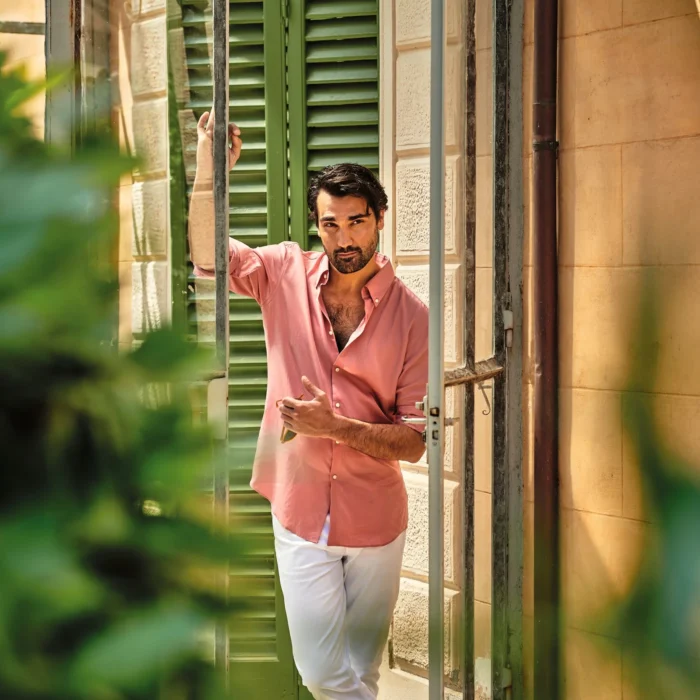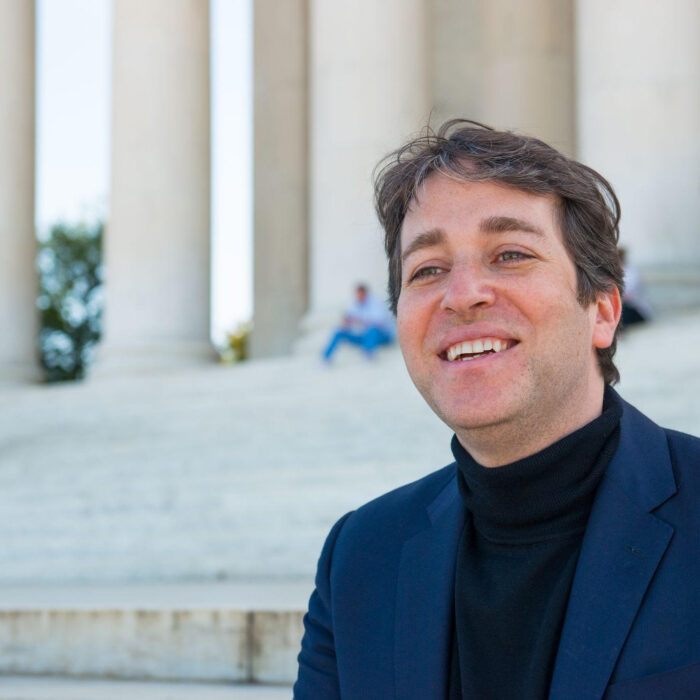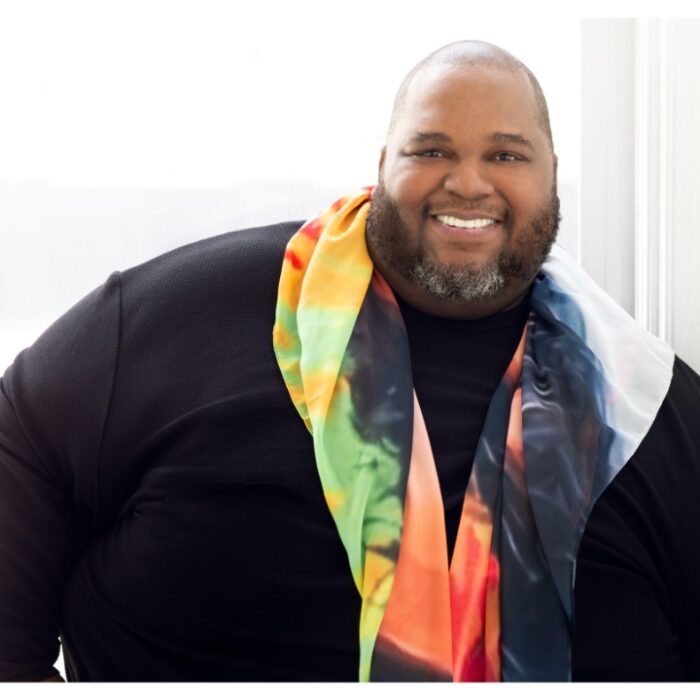
Q & A: Judith Stillman On Her Multi-Faceted Career & ‘I Cherish Women’
By David SalazarIt’s not uncommon to see people take on diverse roles in the modern opera world. Many musicians are also composers and often singers become directors. But to have a composer, conductor, pianist, and director in one is not something you find too often.
Yet, Judith Stillman has found a way to manage all these roles, and others (she’s also a filmmaker) throughout her career.
Stillman’s career achievements read like those of any superstar. She’s a Juilliard Grad, having earned her Bachelor’s, Master’s, and Doctorate from the esteemed conservatory. She performed at the Grammy’s with none other than legendary cellist Mstislav Rostropovich. She appeared in the Academy Awards’ “United Nations.” She’s won 18 piano competitions in her career and has worked at Tanglewood, the Grand Teton Music Festival, the Metropolitan Opera, the Borromeo, and a number of other venues around the globe. And that’s only as a pianist.
Her compositions have been major humanitarian efforts, including “Phoenix from the Ashes,” which was the centerpiece of the Holocaust Commemoration at the Embassy of the Czech Republic in Washington, D.C. Her films have screened as official selections in festivals in NYC, LA, San Francisco, Montreal, and Toronto. She has also founded “Refugee Artistry.”
OperaWire recently spoke with Stillman about her upcoming projects, including an ambitious film that features prominent female singers.
OperaWire: You balance a career as a director, conductor, composer, and pianist, among other roles. How do you manage to give each one the time required for continued growth? How do you integrate them with one another?
Judith Stillman: While it can be a complex juggling act in some respects, on the other hand, the amalgamation is often quite natural. In many productions, I’ll be the pianist-conductor for works I’ve composed. So, I can envision the end product during the process of creating the work, and then, hopefully, bring the vision to fruition.
OW: Please tell me a bit about how you came to realize that you wanted to take a path into the world of the arts.
JS: According to family folklore, I began playing piano by ear at the age of three. My brother, six years older than I, was taking lessons, and I would sit in on them. When he would scurry outdoors, I would hop to our Sohmer console piano, sit on three telephone books, and – apparently – sail through the pieces he had been struggling with. Strains of Puccini and Verdi reverberated throughout the house in my childhood, as my mother and grandmother were opera singers.
I began Juilliard pre-college while in elementary school and continued there through my bachelor’s, master’s and doctoral degrees, each degree a seemingly pre-ordained segue from the previous one.
There were seminal moments along the path that helped define the shape of my career. Among the highlights were: meeting Wynton Marsalis when we were teens and both fellowship students at Tanglewood, forging a lifelong collaboration, and recording our duo album on Sony, which was on the Top Ten of the Billboard charts; performing with the world’s greatest musicians at Marlboro; receiving inspiration from mentors Leon Fleisher, Rudolf Serkin, Andre Watts and, in the vocal accompanying world, Martin Katz and Martin Isepp; recording with members of the Boston Symphony, New York Philharmonic, Los Angeles Philharmonic and The Metropolitan Opera.
Leon Fleisher has taken on guru-like proportions for me. After all, he is descended from Beethoven! Here’s the remarkable lineage: Beethoven taught Czerny, who taught Leschetizky, who taught Schnabel, who taught Fleisher, who taught…. me! I feel blessed and grateful for the opportunity to be in the orbit of such luminaries who have served as the wind beneath my wings.
OW: What was the inspiration behind “I Cherish Women?”
JS: A quote that resonates deeply with me has been the source of inspiration for a number of recent works: “Against the ruin of the world there is only one defense: the creative act.”
And, Leonard Bernstein, a mentor during my Tanglewood fellowship days, gave musicians the directive that, in times of unrest, we need to make music more passionately, more intensely and more devotedly than ever before.
OW: What was the process of creating it? How did you know which singers you wanted to bring aboard?
JS: It was truly remarkable that the entire project – from inception to completion, including composing, recording and editing the film – came together within days! Composing the piece happened in one evening, rehearsing and recording the choral music took one afternoon, the narration piece and post-production phases were a little more time-consuming. The singers were comprised of friends and colleagues, seasoned professionals and consummate musicians, some of whom have sung leading roles at The Metropolitan Opera.
OW: How was post-production more time-consuming?
JS: Each speaker was recorded separately on location and, in post-production, I made decisions about selecting narration takes to parallel the harmonic and emotional arch of the music.
OW: What were the greatest challenges?
The greatest challenges were the logistics – corralling 20 amazingly talented and in-demand singers to the same place at the same time! Most touching is that everyone opted to donate his or her services, time and talent.
OW: What do you hope audiences take away from it?
JS: Our mission in creating “I Cherish Women” is to support and empower women, show that we have no tolerance for sexist, misogynistic treatment of women, or sexually predatory words or behavior and that we stand with others across the globe who defend women’s rights.
Our diverse voices, collectively from The Metropolitan Opera, Juilliard, Harvard, and other major organizations and institutions, interface as one unified voice. Thirty artists and activists unite to deliver a bold statement to “defend human rights and right human wrongs.” We aim to mobilize the virtues of American democracy to protect basic, inalienable rights and freedoms.
The performers cycle through various stages of grief, paralleled by the harmonic and emotional arch of the music.
OW: What other projects do you have coming up? Any operas?
JS: I’ve orchestrated “When the Music Stopped: Honoring Armenian Culture in Remembrance of the Armenian Genocide (for which I’ve written the music and libretto, based upon centuries of Armenian poetry)” for full orchestra, soprano soloist, duduk, narrator and chorus. It will have an initial performance on December 4, 2018, with the glorious Armenian-Canadian soprano, Aline Kutan and accomplished actor, Armen Garo (from “The Departed,” “The Sopranos,” “American Hustle”), as narrator.
Fond of multimedia works, I’ve designed a “play-within-a-concert” – “April in Paris With Poulenc” which will be performed in April! I’ve derived the script by culling Poulenc’s prolific and colorful writings and speeches and created the accompanying visuals from historical research, as well as photographs from my recent trip to Paris. The actor playing the role of Poulenc is the celebrated Artistic Director of Trinity Repertory Company, Curt Columbus, the musicians are principals of the Rhode Island Philharmonic Orchestra – and I’ll be at the piano!


